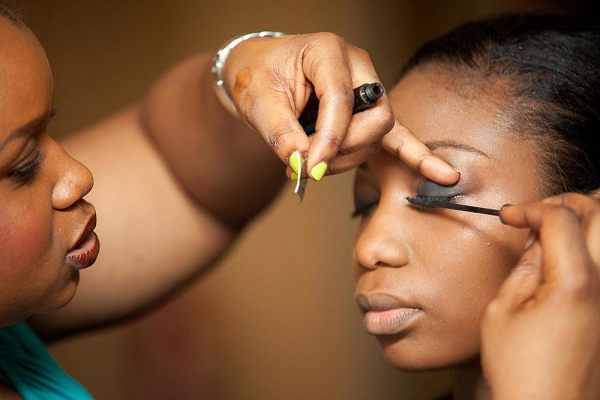
Make-up and skin care products contain a cocktail of chemicals that could leave women infertile and even cause breast cancer.
These chemicals include parabens and BPA, which are considered ‘gender benders’ due to them encouraging male breast growth.
After analysing more than a 100 women, US scientists found those who have these chemicals in their urine produce abnormal amounts of the reproductive hormones oestrogen and progesterone.
ALSO READ: Ghanaian celebrities who abandoned fame to preach the gospel
Excessive oestrogen has been linked to fibroids and polycystic ovary syndrome, while too little prevents eggs from maturing and being released from the ovary. Too much progesterone is associated with both breast cancer and unusual vaginal bleeding.
Previous research suggests parabens, which are used as preservatives in cosmetics and skincare, mimic oestrogen and may cause cancer, while Bisphenol A (BPA), which is added to perfumes to make scents last longer, has been linked to infertility.
Researchers from George Mason University, Virginia, analysed the urine samples of 143 healthy women, all of which were pre-menopausal and not taking birth control.

Each woman provided between three and five urine samples over two menstrual cycles. These were assessed for the chemicals BPA, parabens, chlorophenols and benzophenones.
Chlorophenols are used as preservatives in cosmetics and have been linked to acne, liver injury and cancer.
ALSO READ: My cute body is not Obengfo-made – Rosemond Brown [Video]
Benzophenones are added to products like lip balm and nail varnish to protect them against UV light. They also prevent products like soap losing their colour and scent. Studies have linked benzophenones to cancer and infertility.
Blood samples were taken from all of the participants to determine their levels of the following hormones – oestrogen, progesterone, FSH and LH.
FSH stimulates an egg to grow in the ovary, while LH causes the egg to be released. Oestrogen stops FSH production so only one egg matures per cycle and also stimulates LH’s production. Progesterone thickens the uterus wall to prepare for a fertilised egg.
Results, published in the journal Environment International, suggest exposure to all of the studied chemicals increases a woman’s progesterone levels.
Those with higher levels of chlorophenols in their urine also produce more oestrogen and FSH, while parabens and BPA increase oestrogen.
Too much oestrogen is linked to the condition oestrogen dominance, which can lead to non-cancerous growths in the uterus and PCOS.
ALSO READ: Creative persons are doomed in Ghana – Rex Omar
Chlorophenols are associated with reduced oestrogen, FSH and LH production. Low FSH levels suggest a woman is not producing eggs, while reduced LH can be a sign of PCOS.
Dr Pollack said: ‘What we should take away from this study is that we may need to be careful about the chemicals in the beauty and personal care products we use.
‘We have early indicators that chemicals such as parabens may increase oestrogen levels. If this finding is confirmed by additional research, it could have implications for oestrogen dependent diseases such as breast cancer.’
